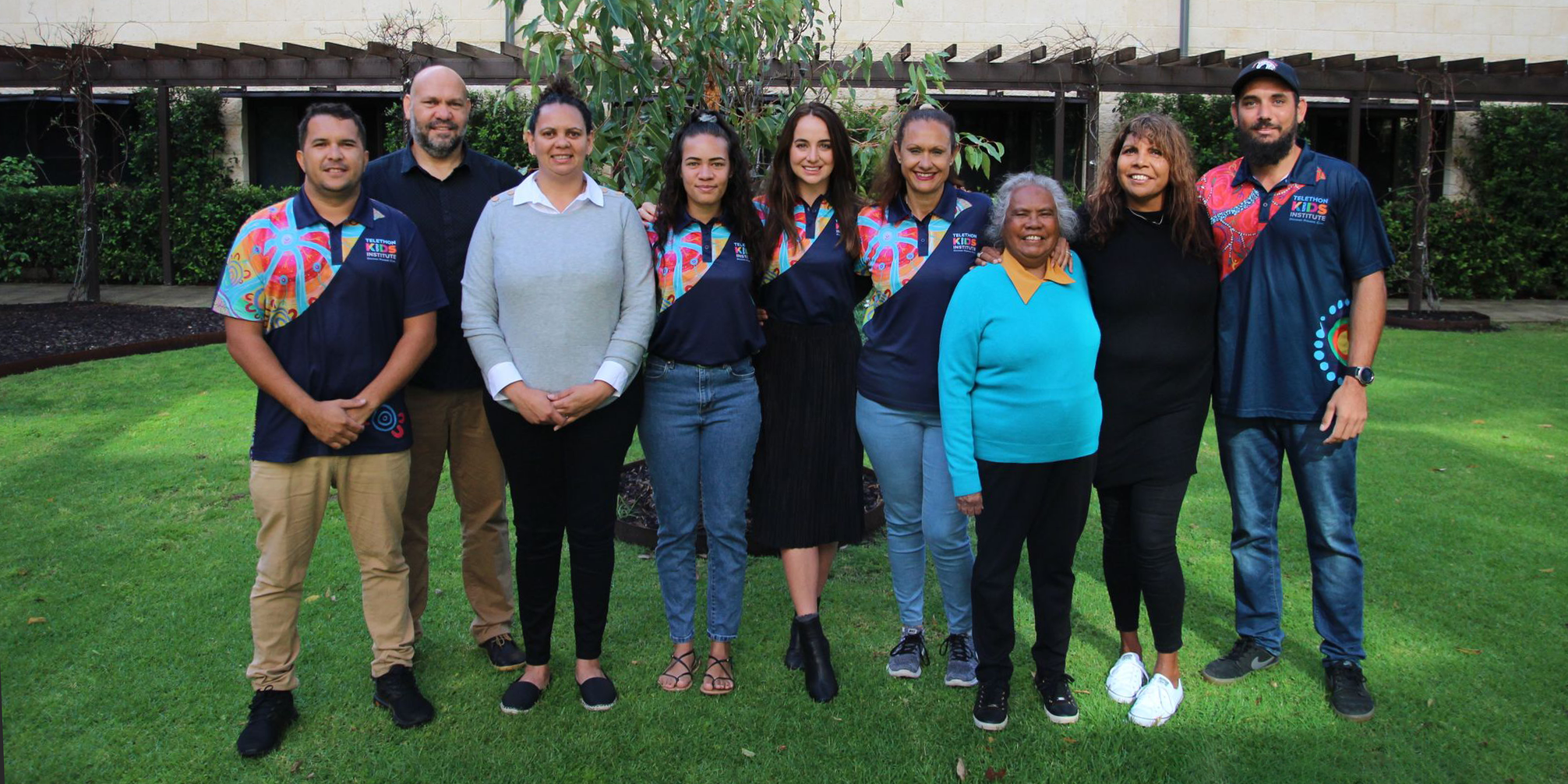Search

News & Events
Aboriginal Employment and Career Development StrategyWe are excited to launch our new Aboriginal Employment and Career Development Strategy (AECDS), aimed at building a culturally secure work environment by continuing to embed Aboriginal health & wellbeing into our research.

Helping families to unlock the mental and physical health benefits of connecting with nature and community through outdoor play - easily, and locally.

News & Events
Dental screening app shown to have potential to help remote familiesORIGINS' Dental Screening project has completed its feasibility study, showing that the tested smartphone app, enabling remote screening of children's teeth by dental professionals, has the potential to help remote families access dental care, among other benefits.
Research
Playful BytesNurturing children's health together: A collaboration between early childhood education and care (ECEC) educators and parents on active play and eating well
Research
Development of a sustained release implant of benzathine penicillin G for secondary prophylaxis of rheumatic heart diseaseRegular intramuscular (i.m.) benzathine penicillin G (BPG) injections have been the cornerstone of rheumatic heart disease (RHD) secondary prophylaxis since the 1950s. Patient adherence to IM BPG is poor, largely due to pain, the need for regular injections every 3-4 weeks and health sector delivery challenges in resource-limited settings. There is an urgent need for new approaches for secondary prophylaxis, such as an implant which could provide sustained penicillin concentrations for more than 6 months.
Research
Otitis media at 6-monthly assessments of Australian First Nations children between ages 12–36 months: Findings from two randomised controlled trials of combined pneumococcal conjugate vaccinesIn remote communities of northern Australia, First Nations children with hearing loss are disproportionately at risk of poor school readiness and performance compared to their peers with no hearing loss. The aim of this trial is to prevent early childhood persisting otitis media (OM), associated hearing loss and developmental delay.
Research
“It helps and it doesn’t help”: maternal perspectives on how the use of smartphones and tablet computers influences parent-infant attachmentAs families increase their use of mobile touch screen devices (smartphones and tablet computers), there is potential for this use to influence parent-child interactions required to form a secure attachment during infancy, and thus future child developmental outcomes. Thirty families of infants (aged 9-15 months) were interviewed to explore how parents and infants use these devices, and how device use influenced parents' thoughts, feelings and behaviours towards their infant and other family interactions.
Research
Implications of Non-Specific Effects for Testing, Approving, and Regulating VaccinesThe current framework for testing and regulating vaccines was established before the realization that vaccines, in addition to their effect against the vaccine-specific disease, may also have "non-specific effects" affecting the risk of unrelated diseases. Accumulating evidence from epidemiological studies shows that vaccines in some situations can affect all-cause mortality and morbidity in ways that are not explained by the prevention of the vaccine-targeted disease.
Research
The evidence that rheumatic heart disease control programs in Australia are making an impactRheumatic heart disease (RHD) comprises heart-valve damage caused by acute rheumatic fever (ARF). The Australian Government Rheumatic Fever Strategy funds RHD Control Programs to support detection and management of ARF and RHD. We assessed epidemiological changes during the years of RHD Control Program operation.
Research
Impact of vascular screening interventions on perceived threat, efficacy beliefs and behavioural intentions: a systematic narrative reviewHealth-related behaviours contribute to the global burden of cardiovascular disease (CVD). Cardiovascular imaging can be used to screen asymptomatic individuals for increased risk of CVD to enable earlier interventions to promote health-related behaviours to prevent or reduce CVD risk.
